Samba, also known as samba urbano carioca or simply samba carioca is a Brazilian music genre that originated in the Afro-Brazilian communities of Rio de Janeiro in the early 20th century. Having its roots in the cultural expression of West Africa and in Brazilian folk traditions, especially those linked to the primitive rural samba of the colonial and imperial periods, is considered one of the most important cultural phenomena in Brazil and one of the country symbols. Present in the Portuguese language at least since the 19th century, the word "samba" was originally used to designate a "popular dance". Over time, its meaning has been extended to a "batuque-like circle dance", a dance style, and also to a "music genre". This process of establishing itself as a musical genre began in the 1910s and it had its inaugural landmark in the song "Pelo Telefone", launched in 1917. Despite being identified by its creators, the public, and the Brazilian music industry as "samba", this pioneering style was much more connected from the rhythmic and instrumental point of view to maxixe than to samba itself.
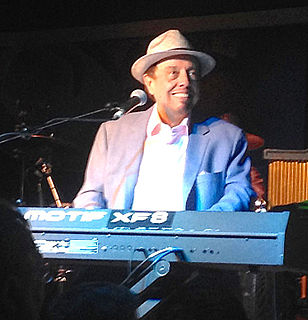
Sérgio Santos Mendes is a Brazilian musician. He has over 55 releases, and plays bossa nova heavily crossed with jazz and funk. He was nominated for an Oscar for Best Original Song in 2012 as co-writer of the song "Real in Rio" from the animated film Rio.

Jorge Duilio Lima Menezes is a Brazilian popular musician, performing under the stage name Jorge Ben Jor since the 1980s, though commonly known by his former stage name Jorge Ben. His characteristic style fuses samba, funk, rock and bossa nova with lyrics that blend humor and satire with often esoteric subject matter. His hits include "Chove Chuva", "Mas Que Nada", "Ive Brussel" and "Balança Pema", and have been interpreted by artists such as Caetano Veloso, Sérgio Mendes, Miriam Makeba, and Marisa Monte.

Getz/Gilberto is an album by American saxophonist Stan Getz and Brazilian guitarist João Gilberto, featuring pianist and composer Antônio Carlos Jobim, who also composed many of the tracks. It was released in March 1964 by Verve Records. The album features the vocals of Astrud Gilberto on two tracks, "Garota de Ipanema" and "Corcovado". The artwork was done by artist Olga Albizu. Getz/Gilberto is a jazz and bossa nova album and includes tracks such as "Desafinado", "Corcovado", and "Garota de Ipanema". The last received a Grammy Award for Record of the Year and started Astrud Gilberto's career. "Doralice" and "Para Machucar Meu Coração" strengthened Gilberto's and Jobim's respect for the tradition of pre-bossa nova samba.

Dorival Caymmi was a Brazilian singer, songwriter, actor, and painter active for more than 70 years beginning in 1933. He contributed to the birth of Brazil's bossa nova movement, and several of his samba pieces, such as "Samba da Minha Terra", "Doralice" and "Saudade da Bahia", have become staples of música popular brasileira. Equally notable are his ballads celebrating the fishermen and women of Bahia, including "Promessa de Pescador", "O Que É Que a Baiana Tem?", and "Milagre". Caymmi composed about 100 songs in his lifetime, and many of his works are now considered to be Brazilian classics. Both Brazilian and non-Brazilian musicians have covered his songs.

Gal Costa is a Brazilian singer of popular music.

Walter Wanderley was a Brazilian organist and pianist, best known for his lounge and bossa nova music and for his instrumental version of the song Summer Samba which became a worldwide hit.
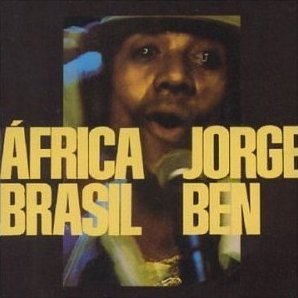
África Brasil is a 1976 release by Brazilian artist Jorge Ben, recording at the time as Jorge Ben. It was Ben's 14th studio album. África Brasil represented a milestone in Ben's career with Ben's switch to electric guitar and incorporation of both Afro-Brazilian and African-American pop music styles into his sound. Known for its funkiness, África Brasil is one of Ben's best-known recordings. Rolling Stone Brazil listed it as one of the 100 best Brazilian albums in history, and it was included in both Robert Dimery's 1001 Albums You Must Hear Before You Die as well as Tom Moon's collection 1,000 Recordings to Hear Before You Die.
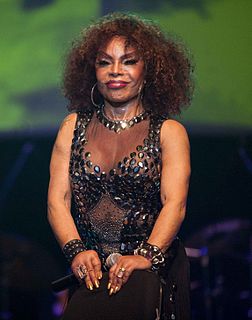
Elza da Conceição Soares, known professionally as Elza Soares is a Brazilian samba singer. In 1999, she was named Singer of the Millennium along with Tina Turner by BBC Radio.
"Mas, que Nada!" is a song written and originally performed in 1963 by Jorge Ben on his debut album Samba Esquema Novo, which became Sérgio Mendes' signature song in his 1966 cover version. It was voted by the Brazilian edition of Rolling Stone as the fifth greatest Brazilian song. It was inducted to the Latin Grammy Hall of Fame in 2013.

Lenine, artist name of Osvaldo Lenine Macedo Pimentel, is a Brazilian singer-songwriter from Recife, Pernambuco. Between the years of 2002 and 2018, he has earned a total of seven Latin Grammy Awards,.
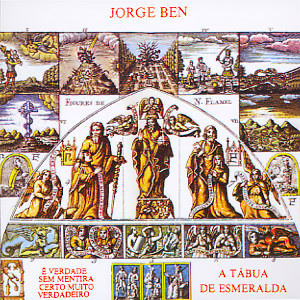
A Tábua De Esmeralda is the 11th studio album by Brazilian singer-songwriter and guitarist Jorge Ben. It was released in 1974 by Philips Records.

Samba Esquema Novo is the 1963 debut album by Brazilian singer-songwriter and guitarist Jorge Ben. It includes the original recording of the international hit "Mas, que Nada!".
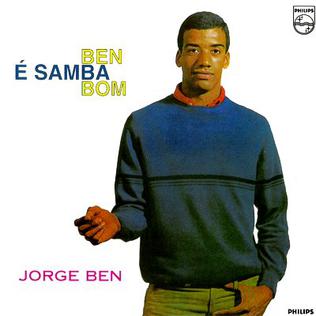
Ben É Samba Bom is the second studio album by Brazilian singer-songwriter and guitarist Jorge Ben, first released in Brazil in 1964. It was reissued in the United States by Philips Records in 1967, under the title Big Ben Strikes Again.
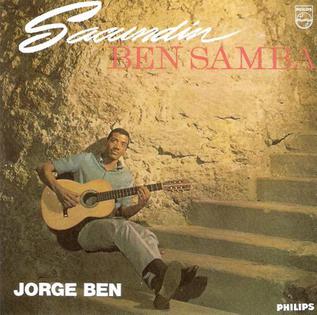
Sacundin Ben Samba is the third album by Brazilian singer-songwriter and guitarist Jorge Ben, released in 1964.

YB Music is an independent record label established in São Paulo, Brazil. It started in 1999, releasing music from new underground artists as well as revival acts. Its catalog includes different syles of Brazilian music featuring hip hop, samba-rock revisited by, electronic music, instrumental music including classical music and jazz, , and mangue beat from Recife. The label was responsible for the first album by Nação Zumbi after the death of their frontman Chico Science. The label received in 2001, 2005 and 2012 the APCA prize with the releases of Samba Rock, Samba Power and Badi Assad respectively.

O Bidú: Silêncio no Brooklin is the fifth studio album by Brazilian singer-songwriter and guitarist Jorge Ben. It was recorded with Brazilian rock band The Fevers as Ben's backing musicians and released in 1967 by Artistas Unidos, a small-market record label based in São Paulo.
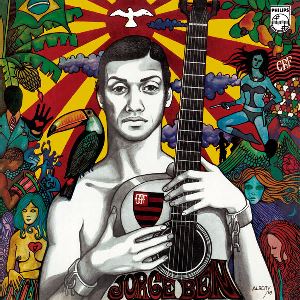
Jorge Ben is the sixth studio album by Brazilian singer-songwriter and guitarist Jorge Ben. It was released in November 1969 by Philips Records. The album was his first recording for a major label since 1965 when his first stint with Philips ended due to creative differences.
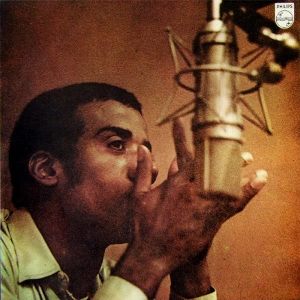
Fôrça Bruta is the seventh studio album by Brazilian singer-songwriter and guitarist Jorge Ben. It was recorded with the Trio Mocotó band and released by Philips Records in September 1970, during a time of political tension in dictatorial Brazil. Its title comes from the Portuguese term meaning "brute force".

Marcondes Falcão Maia, better known by his stage name Falcão, is a singer-songwriter, television presenter, and humorist. Recording on brega and comedy rock genres, Falcão has already released nine studio albums, and popular songs "I'm Not Dog No", "Black People Car", "Holiday Foi Muito", "Homem é Homem" and "I Love You Tonight."


















